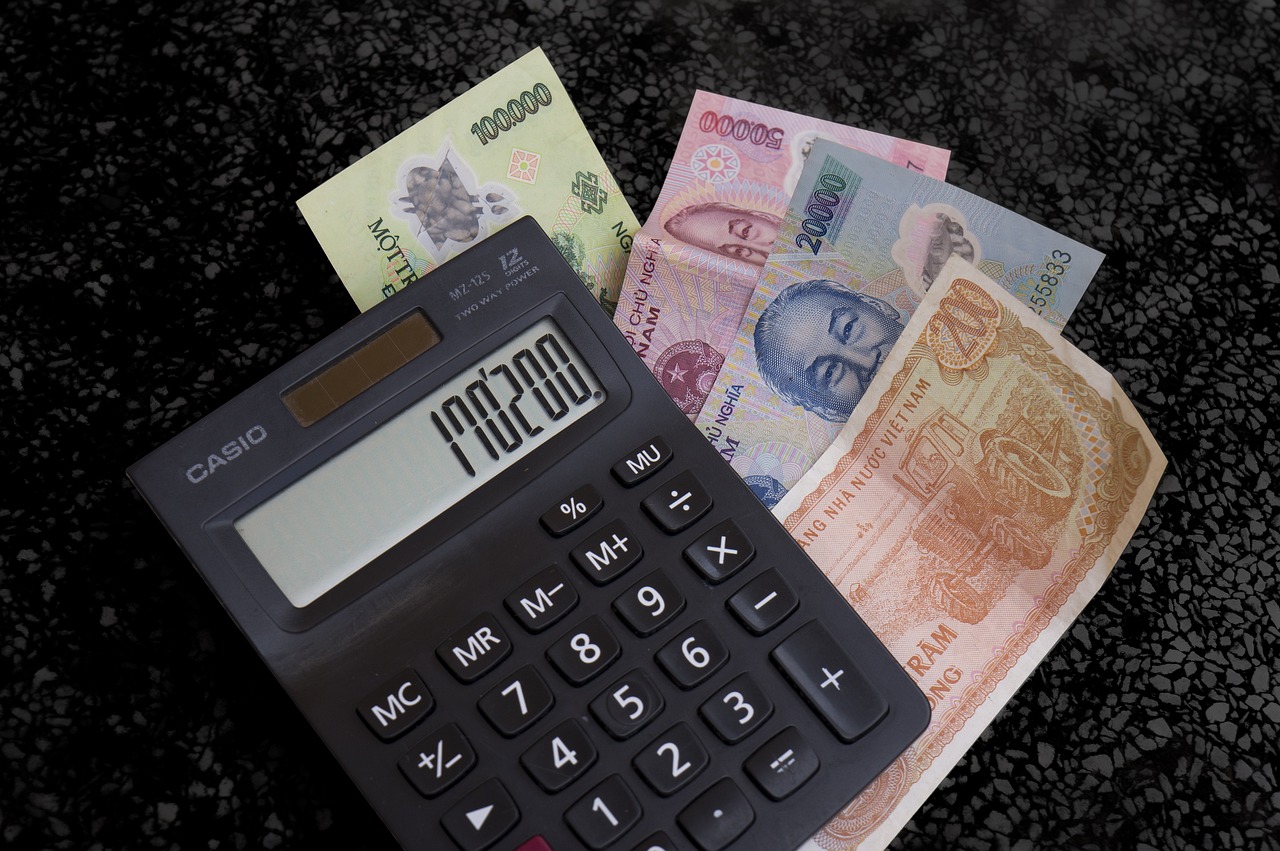Unlocking the Secrets to International Money Transfers: The Fees, Timeframes, Tracking, and Currencies You Need to Know
GPT_Global - 2024-02-03 15:30:06.0 797
Remittance is a vital aspect of the global economy, enabling people to send money to their loved ones living in different countries. This business plays a significant role in facilitating the flow of funds between countries, making it easier for individuals and businesses to engage in cross-border transactions. In simple terms, remittance refers to the transfer of money by a person who lives and works in one country to another individual in another country.
The demand for remittance services has been steadily increasing over the years due to the rise in international migration for work and study purposes. This business has also become an essential lifeline for families in developing countries, as it provides them with a steady stream of income from their relatives working abroad.
With the advent of technology, the remittance business has become more efficient and convenient. Today, people can send money to their loved ones with just a few clicks on their phones or through online platforms. This has made the process faster, safer, and more cost-effective for both the sender and the receiver.
Moreover, the competition in the remittance industry has led to lower transaction fees, resulting in greater savings for the customers. Many companies also offer special promotions and discounts to attract customers, making it more affordable to send money overseas.
Furthermore, the remittance business has also played a significant role in supporting economic development in developing countries. The money sent by migrant workers back home is often used for education, healthcare, and investment in small businesses, which contributes to the overall growth of the economy.
In conclusion, the remittance business plays a crucial role in modern society by connecting people and facilitating financial stability for families across borders. With its continuous growth and improvements, it will continue to provide efficient and cost-effective solutions for individuals and businesses participating in international transactions.

What are the fees associated with international money transfers?
If you are in the remittance business, it is important to understand the fees associated with international money transfers. These fees can vary depending on the method of transfer, the country of origin and destination, and the amount being sent. It is crucial to have a clear understanding of these fees in order to provide your customers with accurate information and avoid any unexpected costs.
The first fee to consider is the transaction fee. This is the amount charged by the remittance service provider for processing the transfer. This fee can range from a flat rate to a percentage of the amount being sent. It is important to compare transaction fees between different providers to ensure you are offering your customers a competitive rate.
Another fee to consider is the exchange rate. When sending money internationally, the currency will need to be converted. Exchange rates are constantly changing and can have a significant impact on the amount received by the recipient. It is important to offer your customers competitive exchange rates to attract more business.
In addition to the transaction fee and exchange rate, there may be other fees such as a handling fee or an intermediary bank fee. These fees can vary depending on the provider and should also be considered when comparing remittance services.
It is also important to keep in mind that some countries may have restrictions or regulations when it comes to sending and receiving money. This can result in additional fees or longer processing times. It is important to inform your customers about these regulations to avoid any delays or unexpected costs.
In conclusion, understanding the fees associated with international money transfers is crucial in the remittance business. It is important to compare fees between different providers to offer your customers competitive rates. By being transparent and providing accurate information, you can build trust with your customers and attract more business in the long run.
How long does it take for an international money transfer to go through?
Sending money internationally has become a common practice in today's globalized world. With the rise of remittance businesses, it has become easier to transfer money across borders. However, one question that often arises is: how long does it take for an international money transfer to go through? Let's find out.
The time frame for an international money transfer to go through can vary depending on various factors. The first and most crucial factor is the mode of transfer. If you are using traditional methods like bank transfers, it can take anywhere from 2-5 business days for the funds to reach the recipient. This is because banks have to go through a complex process of verifying the transaction, which involves multiple intermediaries and can cause delays.
On the other hand, if you opt for online money transfer services, the process can be much faster. Companies like Western Union or PayPal are known for their quick transfer times, with funds reaching the recipient within minutes. However, these services may come with higher fees compared to banks, so it's essential to consider all your options.
The destination country can also play a significant role in the time it takes for an international money transfer to go through. Some countries have strict regulations and financial systems, which can delay the process. It's essential to do your research and choose a reliable remittance service that operates smoothly in the recipient's country.
Other factors that can affect the transfer time include the amount being transferred, the currency exchange rate, and any public holidays or weekends in either the sender's or recipient's country.
In conclusion, the transfer time for an international money transfer can vary depending on various factors. It's crucial to choose a reliable and efficient remittance service, understand the mode of transfer, and keep all necessary information handy to avoid any delays. With the right service and knowledge, you can ensure a smooth and timely transfer of funds across borders.
Can I track my international money transfer?
Yes, you can track your international money transfer through various methods provided by remittance companies. These methods include online tracking systems, email and SMS alerts, and customer service support.
Most remittance companies have online tracking systems on their websites or mobile apps, where you can enter your transaction details, such as the reference number and the recipient's name, to get real-time updates on the status of your transfer. This allows you to know when the money has been sent, received, and credited to the recipient's account.
Another way to stay informed about your international money transfer is through email and SMS alerts. When you make a transfer, the remittance company will send you a confirmation email or text message with the transaction details and a tracking number. You can use this number to track your transfer and receive notifications of any updates.
In case you face any issues or have questions regarding your transfer, most remittance companies have customer service support available to assist you. You can contact them via phone, email, or live chat to get updates on your transfer, resolve any problems, or make changes to your transfer if needed.
Tracking your international money transfer not only provides you with peace of mind but also allows you to keep track of the exchange rates and fees charged for the transfer. This can help you make informed decisions in the future and save money on your transfers.
In conclusion, tracking your international money transfer is possible and highly recommended as it keeps you updated on the status of your transfer and helps you stay in control of your finances. With multiple tracking options available, you can easily monitor your transfer and ensure that your money reaches its intended destination safely and on time.
What currencies can I send and receive through international money transfers?
International money transfers allow individuals and businesses to send and receive money across borders. One of the main advantages of using this service is the ability to send and receive money in different currencies. Here are some of the major currencies that can be sent and received through international money transfers:
1. USD (US Dollar)
The US dollar is one of the most widely accepted and used currencies in the world. It is accepted in many countries as a form of payment and is widely traded on the foreign exchange market. This makes it a popular choice for international money transfers, especially for transactions with countries such as the United States, Canada, and Mexico.
2. EUR (Euro)
The euro is the official currency of the European Union and is used by 19 out of the 27 member states. It is also the second most traded currency in the world, making it a reliable option for international money transfers. The euro is commonly used in countries in Europe, such as France, Germany, and Italy.
3. GBP (British Pound)
The British pound is the official currency of the United Kingdom and is also commonly used in some British territories. It is a strong and stable currency, making it a popular choice for international money transfers. The British pound is accepted in many countries, including the UK, Australia, and New Zealand.
4. JPY (Japanese Yen)
The Japanese yen is the official currency of Japan and is the third most traded currency in the world. It is widely accepted in Asia and is a popular choice for international money transfers with countries like China, South Korea, and Singapore.
5. AUD (Australian Dollar)
The Australian dollar is the official currency of Australia and is commonly used in other Pacific countries such as New Zealand, Fiji, and Tonga. It is also widely accepted in many parts of Asia and is a common choice for international money transfers in the region.
6. CAD (Canadian Dollar)
The Canadian dollar is the official currency of Canada and is widely accepted in North America. It is also commonly used in some Caribbean countries and is a popular choice for international money transfers with these regions.
7. CNY (Chinese Yuan Renminbi)
The Chinese yuan renminbi is the official currency of China and is becoming increasingly important in international trade. It is accepted in many countries in Asia and is a popular choice for international money transfers, especially for transactions with China.
8. INR (Indian Rupee)
The Indian rupee is the official currency of India and is accepted in many South Asian countries. It is also commonly used in some Gulf countries and is a popular choice for international money transfers with these regions.
In conclusion, international money transfers offer convenience and flexibility in sending and receiving money globally. With the ability to transfer various currencies, individuals and businesses can easily conduct transactions with different countries without worrying about currency exchange rates and fees. Before making an international money transfer, it's important to research the fees and exchange rates offered by different providers to ensure you get the best deal.
About Panda Remit
Panda Remit is committed to providing global users with more convenient, safe, reliable, and affordable online cross-border remittance services。
International remittance services from more than 30 countries/regions around the world are now available: including Japan, Hong Kong, Europe, the United States, Australia, and other markets, and are recognized and trusted by millions of users around the world.
Visit Panda Remit Official Website or Download PandaRemit App, to learn more about remittance info.



